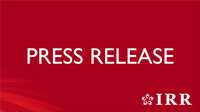
The IRR welcomes the renewed scrutiny of the government’s National Health Insurance (NHI) scheme following President Cyril Ramaphosa’s deceiving claims about what it could achieve, for it focuses attention on the effective, affordable alternatives that really do offer the best hope of delivering quality healthcare for all.
Scrutiny of NHI has laid bare not only the grave risks it would pose to the health of South Africans because of its fundamental weaknesses, but also the prohibitive costs of implementing it.
First, as IRR deputy head of policy research Hermann Pretorius pointed out this week, NHI will risk infecting the entire South African health system with the chronic failures of the current government-run health system, in which unacceptable levels of maladministration, mismanagement, and corruption have serious consequences – sometimes life-threatening – for the very people it is meant to serve.
Second, Pretorius said, the government “has simply avoided its responsibility to be honest with South Africans about the immense financial strain the NHI would put on taxpayers and a government already in a debt crisis”.
In short, he warned, NHI “is likely to be worse than the disease it is trying to cure: too many South Africans not having access to quality healthcare”.
“Covid-19 has only further exposed how terrible these failures are and how, just as government-run energy causes load-shedding, government-run healthcare cruelly causes life-shedding,” he said.
There are better alternatives.
Universal health coverage is already available, mostly for no charge, through the country’s public clinics and hospitals. To function better, these need merit-based appointments, strict accountability for poor performance, and effective action against corruption and wasteful spending. Public-private partnerships would also help improve their operation.
The burden on the public system should be reduced by increasing access to private healthcare. Low-cost medical schemes and primary health insurance policies should be allowed, and poor households should be helped to join these schemes or buy these policies through tax-funded health vouchers.
To help spread risks, medical scheme membership and/or health insurance cover should be mandatory for all employees, with premiums for lower-paid employees buttressed by employer contributions for which businesses would garner tax credits. Medical schemes and health insurers would then have to compete for the custom of South Africans, which would encourage innovation and help to hold down costs.
The supply of health facilities can be greatly expanded through regulatory reforms aimed at allowing the private sector to establish more day hospitals and the like. Private universities and hospitals should also be permitted to train doctors, specialists, and other health providers, as public training institutions clearly cannot meet the scale of need.
Said Pretorius: “The long and short of it is that NHI is not only dangerous and expensive but also fundamentally unnecessary. The goal of accessible quality healthcare for all is absolutely one that all South Africans can support, but the NHI offers nothing in the way of a solution – especially when there are far better ways to achieve that goal.”
Media contact: Hermann Pretorius, IRR Deputy Head of Policy Research – 079 875 4290; hermann@irr.org.za
Media enquiries: Michael Morris Tel: 066 302 1968 Email: michael@irr.org.za
Kelebogile Leepile Tel: 079 051 0073 Email: kelebogile@irr.org.za
Ends
 LETTER | Rethinking BEE premiums could unlock billions for growth - Business Day
Feb 19, 2026
LETTER | Rethinking BEE premiums could unlock billions for growth - Business Day
Feb 19, 2026
 IRR’s 2026 Budget tips for Minister Godongwana
Feb 19, 2026
IRR’s 2026 Budget tips for Minister Godongwana
Feb 19, 2026
 Corruption-busting must begin with next week’s Budget – IRR
Feb 18, 2026
Corruption-busting must begin with next week’s Budget – IRR
Feb 18, 2026
 Hold Ramaphosa to account for his SONA admissions of failure, IRR urges MPs
Feb 17, 2026
Hold Ramaphosa to account for his SONA admissions of failure, IRR urges MPs
Feb 17, 2026
 Corrigan pt. II: FMD crisis — How did we get to this point? - Biznews
Feb 16, 2026
Corrigan pt. II: FMD crisis — How did we get to this point? - Biznews
Feb 16, 2026

 LETTER | Rethinking BEE premiums could unlock billions for growth - Business Day
Feb 19, 2026
LETTER | Rethinking BEE premiums could unlock billions for growth - Business Day
Feb 19, 2026
 IRR’s 2026 Budget tips for Minister Godongwana
Feb 19, 2026
IRR’s 2026 Budget tips for Minister Godongwana
Feb 19, 2026
 Corruption-busting must begin with next week’s Budget – IRR
Feb 18, 2026
Corruption-busting must begin with next week’s Budget – IRR
Feb 18, 2026
 Hold Ramaphosa to account for his SONA admissions of failure, IRR urges MPs
Feb 17, 2026
Hold Ramaphosa to account for his SONA admissions of failure, IRR urges MPs
Feb 17, 2026
 Corrigan pt. II: FMD crisis — How did we get to this point? - Biznews
Feb 16, 2026
Corrigan pt. II: FMD crisis — How did we get to this point? - Biznews
Feb 16, 2026